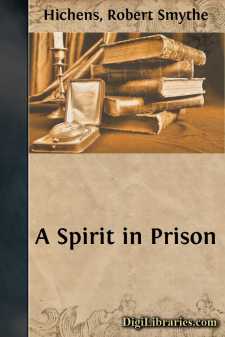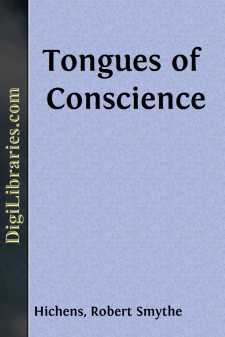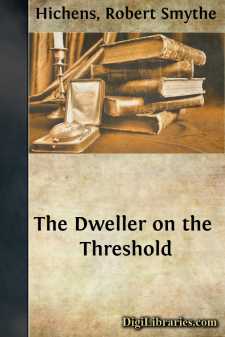Categories
- Antiques & Collectibles 13
- Architecture 36
- Art 48
- Bibles 22
- Biography & Autobiography 813
- Body, Mind & Spirit 142
- Business & Economics 28
- Children's Books 16
- Children's Fiction 13
- Computers 4
- Cooking 94
- Crafts & Hobbies 4
- Drama 346
- Education 46
- Family & Relationships 57
- Fiction 11829
- Games 19
- Gardening 17
- Health & Fitness 34
- History 1377
- House & Home 1
- Humor 147
- Juvenile Fiction 1873
- Juvenile Nonfiction 202
- Language Arts & Disciplines 88
- Law 16
- Literary Collections 686
- Literary Criticism 179
- Mathematics 13
- Medical 41
- Music 40
- Nature 179
- Non-Classifiable 1768
- Performing Arts 7
- Periodicals 1453
- Philosophy 64
- Photography 2
- Poetry 896
- Political Science 203
- Psychology 42
- Reference 154
- Religion 513
- Science 126
- Self-Help 84
- Social Science 81
- Sports & Recreation 34
- Study Aids 3
- Technology & Engineering 59
- Transportation 23
- Travel 463
- True Crime 29
The Way of Ambition
Categories:
Description:
Excerpt
CHAPTER I
"We want a new note in English music," said Charmian, in her clear and slightly authoritative voice. "The Hallelujah Chorus era has gone at last to join all the Victorian relics. And the nation is drifting musically. Of course we have a few composers who are being silly in the attempt to be original, and a few others who still believe that all the people can stand in the way of home-grown products is a ballad or a Te Deum. But what we want is an English composer with a soul. I'm getting quite sick of heads. They are bearable in literature. But when it comes to music, one's whole being clamors for more."
"I have heard a new note in English music," observed a middle-aged, bald and lively-looking man, who was sitting on the opposite side of the drawing-room in Berkeley Square.
"Oh, but, Max, you always—"
"An absolutely new note," interrupted Max Elliot with enthusiastic emphasis, turning to the man with the sarcastic mouth who had just spoken. "Your French blood makes you so inclined to incredulity, Paul, that you are incapable of believing anything but that I am carried away."
"As usual!"
"As sometimes happens, I admit. But you will allow that in matters musical my opinion is worth something, my serious and deliberately formed opinion."
"How long has this opinion been forming?"
"Some months."
"Some months!" exclaimed Charmian. "You've kept your new note to yourself all that time! Is it a woman? But of course it can't be. I don't believe there will ever be a great woman composer."
"It is not a woman."
"Was it born in the gutter?" asked Paul Lane.
"No."
"Don't say it's aristocratic!" said Charmian, slightly screwing up her rather Japanese-looking eyes. "I cannot believe that anything really original in soul, really intense, could emanate from the British peerage. I know it too well."
"It is neither aristocratic nor from the gutter. It is of the middle classes. Its father is a banker in the West of England."
"A banker!" said Charmian in a deplorable voice.
"It is Cornish."
"Cornish! That's better. Strange things sometimes come out of Cornwall."
"It has a little money of its own."
"And its name—"
"Is Claude Heath."
"Claude Heath," slowly repeated Charmian. "The name means nothing to me. Do you know it, Mr. Lane?"
Paul Lane shook his smooth black head.
"Heath has not published anything," said Max Elliot, quite unmoved by the scepticism with which the atmosphere of Mrs. Mansfield's drawing-room was obviously charged.
"Not even a Te Deum?" asked Charmian.
"No, though I confess he has composed one."
"If he has composed a Te Deum I give him up. He is vieux jeu. He should go and live in the Crystal Palace."
"And it's superb!" added Max Elliot. "Till I heard it I never realized what the noble words of the Te Deum meant."
Suddenly he got up and moved toward the window murmuring, "All the Earth doth worship Thee, the Father Everlasting."
There was a silence in the room. Charmian's eyes suddenly filled with tears, she scarcely knew why. She felt as if a world was opening out before her, as if there were wide horizons to call to the gaze of those fitted to look upon them, and as if, perhaps, she were one of these elect.
"Father Everlasting!" The words, and the way in which Max Elliot had spoken them, struck into her heart, and so made her feel keenly that she was a girl who had a heart that was not hard, that was eager, desirous, perhaps deep. As to Paul Lane, he stared at his remarkably perfect boots, and drew down the corners of his lips, and his white face seemed to darken as if a cloud floated through his mind and cast a shadow outward.
In the pause the drawing-room door opened, and a woman with blazing dark eyes and snow-white hair, wearing a white tea-gown and a necklace of very fine Egyptian scarabs, came in, with an intense, self-possessed and inquiring look. This was Mrs. Mansfield, "my only mother," as Charmian sometimes absurdly called her.
"You are talking, or you were talking, of something or somebody interesting," she said at once, looking round her at the three occupants of the room.
Max Elliott turned eagerly toward her. He rejoiced in Mrs. Mansfield, and often came to her to "warm his hands at her delightful blaze."
"Of somebody very interesting."
"Whom we don't know?"
"Whom very few people in London know."
"A composer, my only mother, who never publishes, and who is the son of a banker in the West of England."
Charmian seemed suddenly to have recovered her former mood, but she blinked away two tears as she spoke.
"Why shouldn't he be?" said Mrs....












